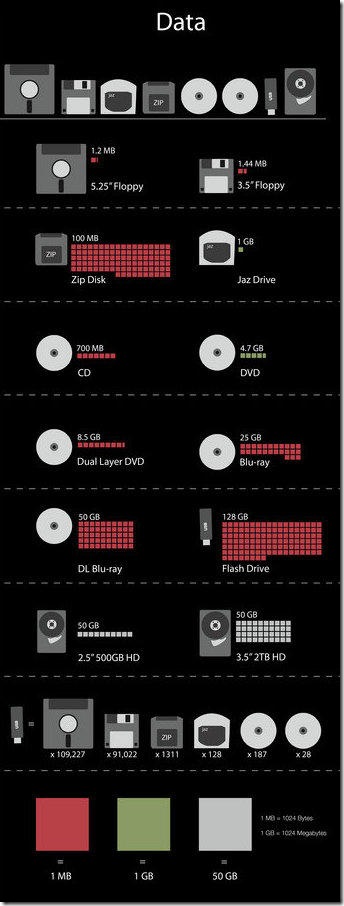Home » personal (Page 2)
Category Archives: personal
How Chatroulette Taught Me Everything I Need to Know About the Internet
Here’s the first paragraph of my new column ‘How Chatroulette Taught Me Everything I Need to Know About the Internet’ for Flow TV:
Genetic scientists love the humble Fruit Fly (Drosophila melanogaster) because it has such a short life-cycle; several generations can live, reproduce, pass on genetic material, and die within a month. In this column, I’d like to suggest that Chatroulette is the current fruit fly of the internet, by which I mean, Chatroulette, its users, and the responses to it, evoke many of the big issues facing internet users today, and do so in a far faster and more immediate way than on the internet at large. On the off chance you’re unfamiliar, Chatroulette does exactly what the name implies: the website randomly connects two users with webcams and chat functionality; there are no log-ins, no registration pages and very few rules, none of which appear to be enforced.1 Notably, Chatroulette was created by Andrey Ternovskiy, a 17 year old Russian student who, legally, would be considered a child himself in many countries. With that context in mind, I want to address Chatroulette in terms of search, ‘Sex!’, privacy, copyright and creativity.
If I’ve sparked your interest, please head over to Flow TV to read the rest.
Evolution of Storage Infographic
Sometimes a good infographic tells you a lot:
What’s most amazing to me is that this entire data evolution has taken place in my lifetime – I still remember using 5.25 floppy disks at high school! The full graphic includes a comparison of photographic and audio storage devices, too.
[Source: Geekologie] [Via BBoing]
The Pig of Happiness
Having one of those days? Perhaps the Pig of Happiness can help?
Yes, I think Edward Monkton is quite clever.
Slow Blog Month …
I realise it has been quite a while between posts, but I have a good reason!
Hopefully when the pile of marking that awaits me is less daunting, your semi-regular blogging service will resume! 😉
Frikkin Laser Beams

I’m in Hong Kong at the moment, teaching up here for a week, and, as every time I’m here I find the mixture of old traditions, new technologies and unbridled capitalism both fascinating and repelling at the same time. That said, I’m always a sucker for a good light show, and Hong Kong’s Symphony of Light is always well worth catching; and while the winter fog and mists obscure parts of the city, they’re an excellent medium to bounce spotlights and lasers off! I’ve captured a few long exposure shots from last night’s Symphony which, if you’re interested, you can see mixed in with some other night cityscape shots here.
The Victorian Bushfires
Normally when historic disasters strike I end up collating the various instances of people using social software and other participatory cultural tools to engage with that event and blogging about that; however, it’s also true that these events tend to be sufficiently far removed from my immediate experience to seem at least a bit distant and abstract. However, the horrific bushfires which have swept across Victoria do not seem distant in any way.
While Victoria is on the other side of the country from Perth where I live, the threat of bushfires are serious for most Australians during the harsh summer heat. Moreover, for whatever reason, many friends and colleagues from Perth have relocated to Melbourne and other bits of Victoria over the last few years – I sometimes wonder if there are more Perthies there than here. Thus I can only describe the news of the past few days of fire after fire after fire as gut-wrenching. No one I know personally has perished, but I know people who’ve lost homes. More to the point, this is a national disaster and a national tragedy; more than 200 people are estimated to have died in a manner I simply cannot imagine. The TV news for the past few days has showed horrific scenes of devastation, crying survivors who all know someone who perished, and images that have no place outside existing except as a special effect in a dystopian end-of-the-world feature film. Amongst this overwhelming imagery, I found that Adrian Miles’ post – Fire – reminded me how personal and close these fires were for so many people, their effects broad-reaching and upsetting in a multitude of ways. (If you really want to look at the social software side, the Wikipedia article ‘2009 Victorian Bushfires’ is growing rapidly, while Asher Moses has a predictable summary – ‘Social media rush as Victorian bushfires rage’ – over at The Age.)
For now, though, the most important thing is to try and help the survivors rebuild, help the injured recover, and help where we can. So, if you can, please consider donating to the Red Cross Victorian Bushfires 2009 appeal.
Talking about Facebook & Privacy with RTR FM
 I was interviewed this morning on Perth’s RTR FM about privacy concerns raised in light of media reports that Facebook plans “to exploit the vast amount of personal information it holds on its 150 million members by creating one of the world’s largest market research databases.” While the reports themselves might have overstated the case in this instance, I’m constantly surprised by how little thought most users of social networking sites give to their own privacy; I’m equally dismayed when it comes as a revelation to people that Facebook is actually about trying to make money – it’s a business, not philanthropy! That said, any chance to get people thinking a bit more about the digital footprints they leave is a good thing and I enjoyed the this morning’s chat on the air. If you want you can access ‘Facebook is evil now?’ on RTR’s website, on click here for an mp3 of the interview (10 minutes, around 9Mb).
I was interviewed this morning on Perth’s RTR FM about privacy concerns raised in light of media reports that Facebook plans “to exploit the vast amount of personal information it holds on its 150 million members by creating one of the world’s largest market research databases.” While the reports themselves might have overstated the case in this instance, I’m constantly surprised by how little thought most users of social networking sites give to their own privacy; I’m equally dismayed when it comes as a revelation to people that Facebook is actually about trying to make money – it’s a business, not philanthropy! That said, any chance to get people thinking a bit more about the digital footprints they leave is a good thing and I enjoyed the this morning’s chat on the air. If you want you can access ‘Facebook is evil now?’ on RTR’s website, on click here for an mp3 of the interview (10 minutes, around 9Mb).
A New Position & New Beginnings …
 So, I’m a bit behind on announcing my new position, but for those who don’t already know, I’ve accepted a lectureship in the Internet Studies department at Curtin University of Technology. The move was motivated by a couple of things, but one the main factors, to be honest, was job security; with an almost-four-month old at home, escaping from rolling one-year contracts suddenly seemed very important! That said, Internet Studies has a lot to offer: I’m working with some fantastic colleagues, am teaching in areas closer to my own research interests than ever before, and this year Curtin is in the midst of reworking its curriculum for a new course structure in 2010 which means I’ll get lots of opportunities to redesign existing offerings and plan out a new stream around the notion of digital presence! I’m pleased that my broader interests in digital culture, as are often evident in this blog, will be at the fore of my teaching now rather than a just a fragment as has been the case in past years.
So, I’m a bit behind on announcing my new position, but for those who don’t already know, I’ve accepted a lectureship in the Internet Studies department at Curtin University of Technology. The move was motivated by a couple of things, but one the main factors, to be honest, was job security; with an almost-four-month old at home, escaping from rolling one-year contracts suddenly seemed very important! That said, Internet Studies has a lot to offer: I’m working with some fantastic colleagues, am teaching in areas closer to my own research interests than ever before, and this year Curtin is in the midst of reworking its curriculum for a new course structure in 2010 which means I’ll get lots of opportunities to redesign existing offerings and plan out a new stream around the notion of digital presence! I’m pleased that my broader interests in digital culture, as are often evident in this blog, will be at the fore of my teaching now rather than a just a fragment as has been the case in past years.
Leaving UWA has been an odd experience, almost like leaving home, in a way. I started out there as a very unsure undergraduate in 1995 majoring in History; along the way my interest shifted to popular culture and media studies and, after a fairly abrupt track change, I ended up with my BA(Hons) in English, Communication and Cultural Studies. Not content with five years tertiary study, I continued straight into a doctoral programme which eventually led to a PhD looking at what I termed Artificial Culture. Along the way I tutored, guest lectured and had the privilege of writing and running several units in English and Cultural Studies, Women’s Studies and the newly independent Communication Studies. In 2006, with PhD in hand, I accepted a position at UWA as a Higher Education developer in 2006 and 2007 and while I enjoyed teaching postgraduates and new academic staff about tertiary teaching, I was definitely happiest last year when I returned to Communication Studies and had the pleasure of teaching an outstanding cohort of undergraduates from first-years to honours students. From the Student News Projects and Digital Media Projects in Comm2203, to the Remix Video Projects by the students in my iGeneration honours unit, I was consistently impressed by what tomorrow’s media creators were achieving as students today! My colleagues in Communication Studies were all fantastic, too, and I’m looking forward to knowing them primarily as friends in the coming years.
This coming semester I’m looking forward getting to know my new colleagues in Internet Studies better, and to being impressed by my Curtin students. It’ll be a different style of teaching, as Internet Studies offers on-campus, external and Open University versions of most units, so there will be a lot more online teaching which will hold new challenges, but no doubt new exciting opportunities, too. In the coming months I’m teaching one unit on Virtual Communities and another called Network Culture and the Virtual Society, so I should be right at home there. Learning a new university, new systems, new rules and new procedures will take a while, especially when the UWA systems really are like second nature to me by now, but it’s a new beginning for me and I’m looking forward to making the most of Internet Studies both in teaching terms and to kick-start a few of the more web-based research projects I’ve been planning. More details on those as they start to reach a more robust form …
(Oh, and the reason blogging has slowed isn’t just due to the move to a new university; my home computer has been running slower and slower under Windows Vista for the past few months until it became unmanageable about a week ago … I’m now in the process of transferring to a new OS, but it’s a gradual process so I’m using an older laptop at home which, being generous, is good for email and word processing at most. Blogging shall resume in full in the coming weeks!)
A Little Bit of History …
Here’s an amusing little bit of personal history: when I was 8 years old, my dad and I were filmed as part of a Channel 7 Perth promotional advertisement series (dad had friends who worked for Channel 7 at the time). I hadn’t seen the clip in more than a decade, but dad recently resurrected it (albeit in very poor quality, as the is a digitisation of a VHS copy from a second-generation BETA copy, with the soundtrack clearly out of sync). The promo is about 30 seconds, but watch around the 18 second mark for my fleeting 2-seconds:





